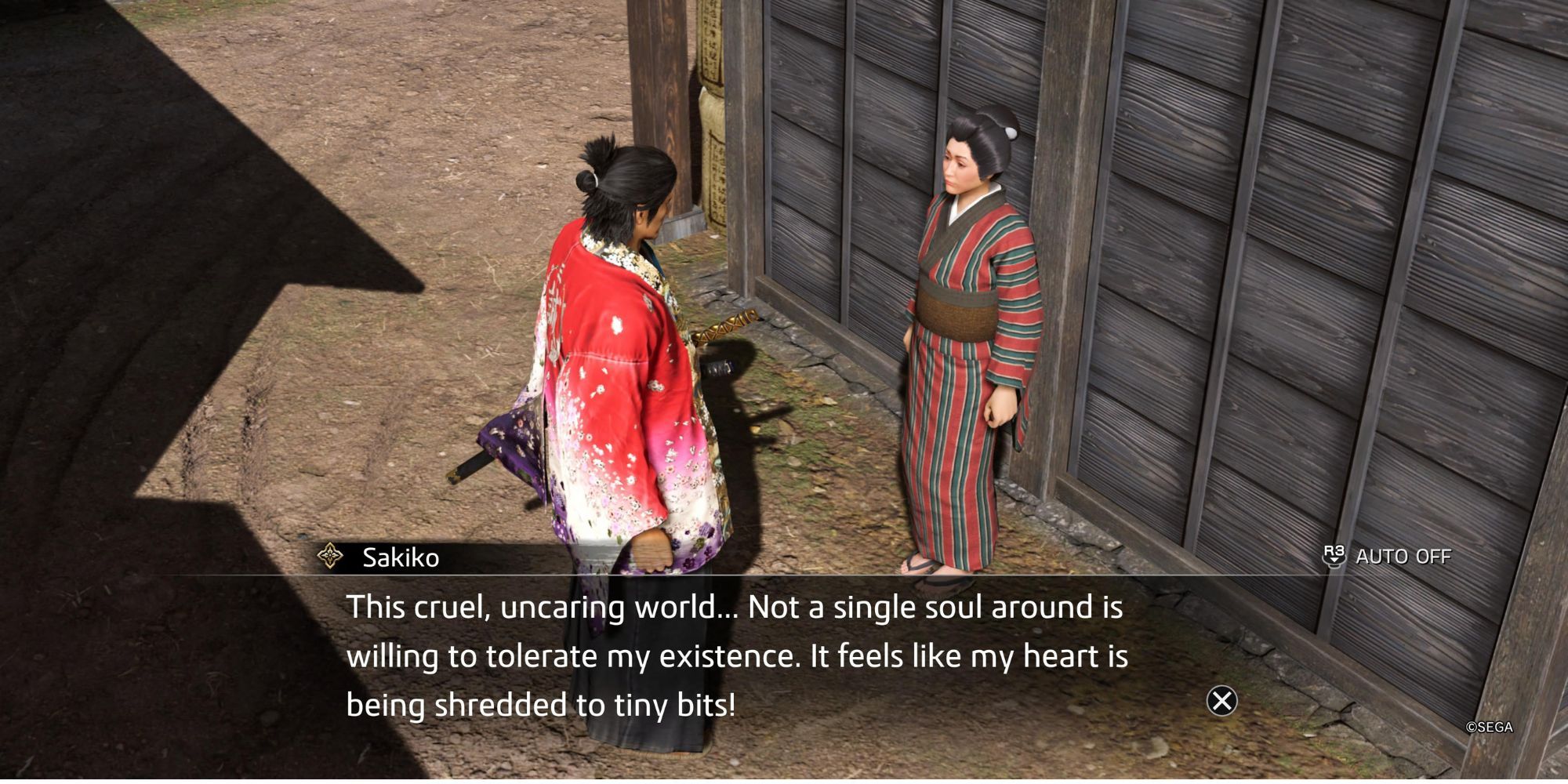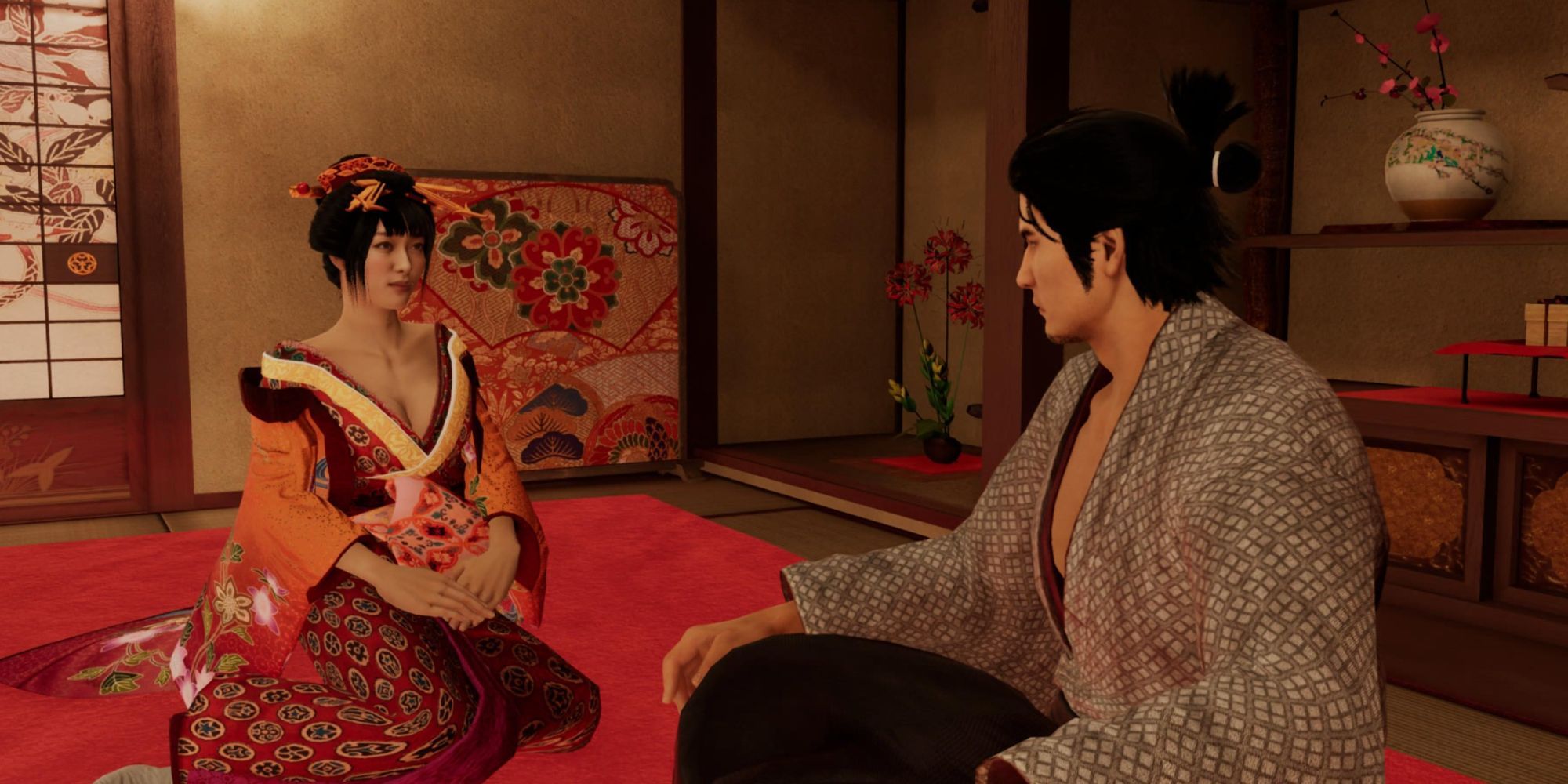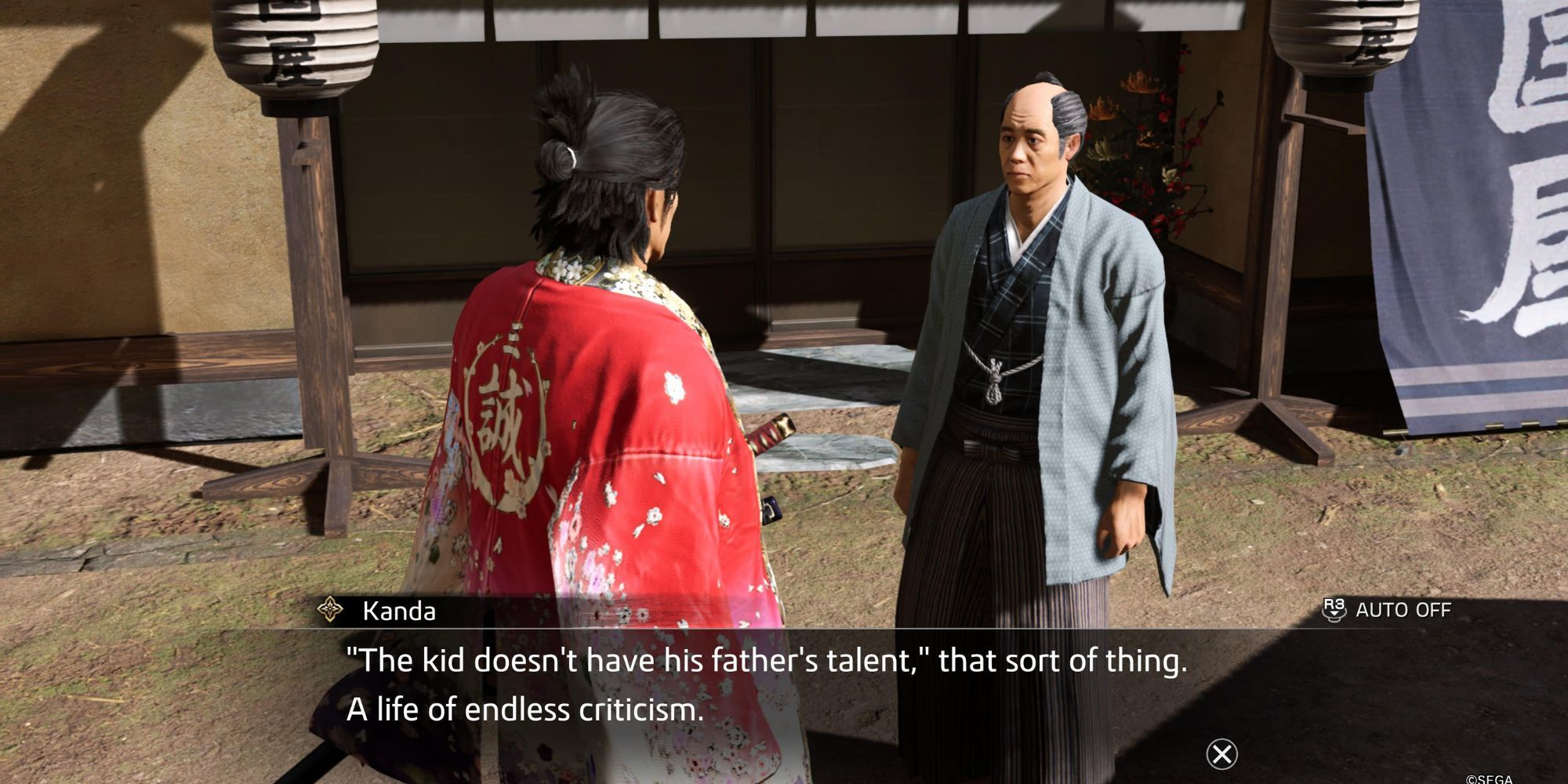Avoid Fast Travel In Like A Dragon: Ishin!
As I dove into the virtual time portal of Like A Dragon: Ishin!, my senses were immediately bombarded by the cacophony surrounding me. The vibrant city of Kyoto pulsated with the energy of its people and oozed with a rich historical legacy, compelling me to scour every inch of its landscape. But to fully appreciate it, I knew I had to do away with the convenience of fast travel wherever I could. Yeah, it might seem like a quick-fix to navigate the terrain, but trust me, taking the scenic route on foot is where the true treasures lie.
If you want to truly experience the thrill of the ride in Ishin!, you’ll have to ditch your fancy palanquin (old man-powered transport car) and get down and dirty on the streets of Kyoto. The people here are like something out of a zany cartoon, and every corner you turn is bound to lead you to a new episode. One minute you might find yourself chasing a crook who just jacked your clothes, leaving you to chase him around butt-naked, the next you could be cracking a case of culinary theft, or getting sucked into some intense housewife drama. And that’s just scratching the surface; this is a game where you’ll go from wild street dancing to resolving star-crossed lovers’ problems, all in a day’s work.
And don’t even get me started on the woman who was all over my “cucumber” one minute, only to flip the script and start demanding “bigger” vegetables, or she’ll scream her head off. The madness never lets up, but what’s even crazier is how intimate it all feels, in some ways closer to my heart than the main series ever was.
People in Ishin! wear their hearts on their sleeves. You can see it in the way children who have no toys pout and get all mopey next to other kids, or when you see lovers sitting on the riverbank crying their eyes out when they’re heartbroken, even before you get to interact with them. It’s like every NPC has a visible story to tell, begging me to come along and get wrapped up in their drama. The way their quests also pop up automatically, sometimes out of nowhere when you accidentally bump into them, helps create an immersive and authentic world that’s asking you to slow down and soak up every last drop of it.
Through my encounters in Ishin, I got a taste of what life was like for families in those days.
NPCs in Yakuza games have always been engaging, I’ll give them that. But I particularly like Ishin! because it weaves the lives of each individual citizen against the larger fabric of Kyoto’s background and political climate, helping you to see them not as random people, but as part of something bigger and more important.
Time for a little history lesson. Back in the days when the tyrannical Tokugawa Shogunate ruled the land, everyday life was plain suffering. Class divisions, social responsibilities, the whole package. I once stumbled in my strolls upon a lonely housewife who simply longed for someone to listen to her endless stories, and I’ll be honest, it wasn’t exactly the most thrilling offer (especially when you have to answer her questions to prove you’re actually reading her info dumps).
But little by little, through my many experiences and encounters in Ishin, I got a real taste of what life was like for families in those days-with husbands sent to distant lands at the whim of the shogun, or dying brutal deaths; I reflected on her loneliness, which felt so burdensome and heavy that it pretty much became my own.
It’s also a tragic irony that the real Sakamoto Ryoma (who Yakuza’s Kiryu plays a fictionalised version of here) also kicked the bucket prematurely, leaving his wife alone, sad, and struggling with alcoholism. So when you talk to her in-game, it’s as if you’re talking to the personification of what your wife would later become (maybe a bit of a pretty dark take on a blabbermouth granny, but hey, the mind wanders where it pleases).
Then there’s the famous artist and his son who just couldn’t play in the same league as his old man, so the son ended up taking his own life. I found myself acting as an art connoisseur of sorts to console the grieving father, but at the same time, I became interested in why it was a matter of life and death for the son to succeed in art. So while I was playing, I googled the lives of merchants and artists in old Japan, and soon realized how bad things were for them because
Artists were considered the lowest and most unproductive class – basically the punching bags of the time, looked down upon, discriminated against and treated as nothing more than parasites. In a similar vein, Ryoma (as a low-ranking samurai/goshi) is looked down upon by high-ranking and arrogant samurai. Suicide might seem extreme , but I can understand how years of oppression and denying peoples’ self-worth could lead to this tragic conclusion. The historical context gives the side story some real weight – it’s not just an arbitrary or disconnected story, but a window into the conflicted society that Ryoma was a part of.
Ryoma’s identity as a samurai and proud citizen of Japan, coupled with his noble mission to reform and bring peace to the nation, gives his journey-and the people he encounters-an unparalleled gravitas in the series (except for maybe the orphanage arc in Yakuza 3). That’s because he’s driven not just by random instances of kindness, but by a moral code and a dream. As Ryoma’s identity and goals permeated every step of my journey, I felt compelled to pursue his ideals with everyone I met, as if they were my true family; that’s something I can’t say about many of the random–and mostly forgettable–passersby in Yakuza.
Every moment I spend with Like A Dragon: Ishin! strengthens these feelings. As I engage with the various residents – from teaching children, to appreciating classical art, to helping others cope with the difficulties of living in Kyoto – I feel like I want to not only get through their stories, but genuinely listen to their pleas, and make a real, tangible difference.
Where in other Yakuza games I’d often rush through the story, fast-travel and move on to the next chapter (the main story was just that crazy), I couldn’t bring myself to do the same with Ishin, and neither should you.




